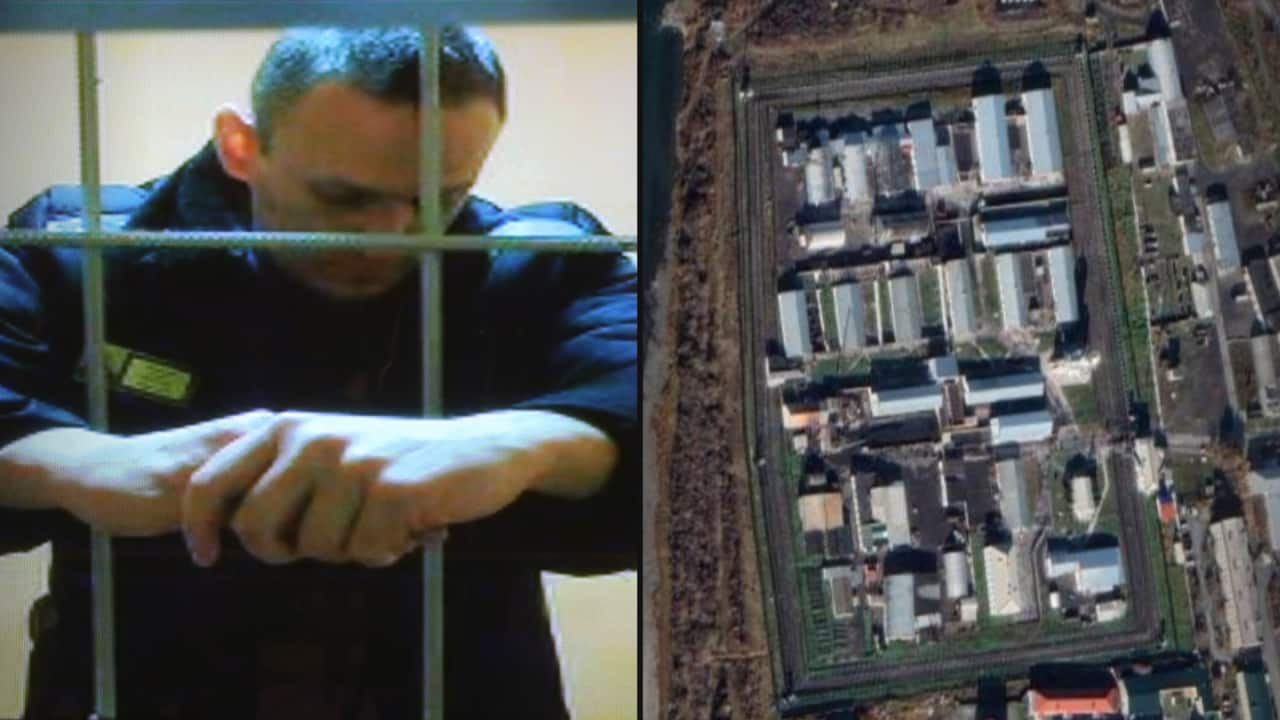Key Points
- Russian opposition leader Alexei Navalny died on 16 February 2024 in a remote Arctic Circle prison camp.
- His supporters in Australia have established memorials for him in most capital cities.
- They will gather for special services to coincide with the one-year anniversary of his passing.
- In 2023, Navalny was sentenced to an additional 19 years in prison on extremism charges.
In the centre of Perth, at the foot of the Ascalon sculpture at St George's Cathedral, is a memorial to the late Russian opposition leader Alexei Navalny, who died one year ago in an Arctic prison.
People in Perth have been bringing flowers to Navalny’s portrait since February 2024, when they were shaken by news of his passing.

A makeshift memorial to the late Alexei Navalny at St George's Cathedral in Perth. Credit: Supplied / Galina Romalis
"This sculpture depicts St George in the most famous part of the feat, where he kills the dragon ... The sculpture is about the fight between good and evil, and the first participants (of the initiative to preserve Navalny’s memory in Perth) also associated Alexei Navalny with the desire to defeat evil," Akifeva told SBS Russian.
She added that the cathedral’s rector, in a meeting with community representatives, said he and other cathedral members were pleased the abstract sculpture had resonated with them.
'Love is stronger than fear'
Meanwhile, in the centre of Sydney, at the Royal Botanic Gardens, is a memorial bench for Navalny with one of his most famous quotes: "Love is stronger than fear."
These words, along with "Russia will be happy" and the famous photo from prison where he forms a love heart with his fingers to cheer up his wife Yulia, have become powerful symbols of love and resilience for Navalny’s supporters.

A bench in memory of Alexei Navalny in Sydney. Source: Supplied / Pavel Shpilev
"Alexei Navalny was more than just a politician. He was a man who stood up to fear with incredible courage ... His belief that love is stronger than fear resonates with many of us, especially those who have been forced to leave their homes in search of safety and freedom," wrote crowdfunding organiser Pavel Shpilev.
This is the least I could do. And if one person wants to learn about Alexei by finding this bench in the park, I think the task will be accomplished.Pavel Shpilev
On Sunday, people from the Russian-speaking community will gather there to pay tribute to the man who once gave them hope for a "beautiful Russia of the future".
After Navalny’s death, people also began bringing flowers and candles to another Sydney memorial site at the monument of Raoul Wallenberg, the Swedish World War Two diplomat and humanitarian who saved thousands of lives in Hungary in 1944 and 1945.
Galina Seredina, secretary of the Svodoba Alliance, told SBS Russian that they were grateful the Jewish community of Sydney allowed them to establish another Navalny memorial there.

A Navalny memorial in Sydney. Credit: Supplied / Galina Seredina

One of Evgeny Feldman's photographs of Alexei Navalny which will feature in a new exhibition in Melbourne. Credit: AP Photo/Evgeny Feldman/AAP Image
"He had quite a close relationship with Alexei. They corresponded a lot when he was already in prison during the last two years," Sanadze said.
Sanadze said she hoped Feldman’s exhibition would become a place where members of the Russian-speaking community who supported Navalny could gather to pay tribute to the man who believed that Russia would be free.
"Perhaps our exhibition will become the main place where we can gather and remember Navalny, to understand the importance of what he did and who he was," she said.
Churches 'under pressure'
In Navalny's book, Patriot, he describes how he converted from atheism to Orthodox Christianity after his child was born and found strength in his faith during the most desperate moments of his final years in prison.
So when Navalny died, his supporters in Australia tried to organise memorial services in various cities but some say they were rebuffed by the Russian Orthodox Church Outside of Russia (ROCOR).
Melbourne-based Petr Kuzmin said he believed the reason for the rebuttal was that churches were "under pressure".
"At first, they agreed. In both Sydney and Melbourne, the priests told us they would hold (the memorial service). But then they changed their minds. (I believe) they were under pressure," Kuzmin said.

A Navalny memorial in Melbourne's famous Hosier Lane in 2024. Source: SBS
Seredina said her group had also experienced difficulties in finding a church.
"We had already made arrangements for everything to take place at a Russian Orthodox Church," she said.
"But for some reason, the priest thought we wanted to organise a political event ... As a result, the service for Alexei took place in a Greek church."
Nicholas Ohotin, Communications Director of Synod of Bishops of the ROCOR, told SBS Russian: "Mr Navalny was not a member of the ROCOR community at any time. Divine services are held for worship and prayer, not for political purposes. There is little doubt that such memorial events would be interpreted as the latter."


